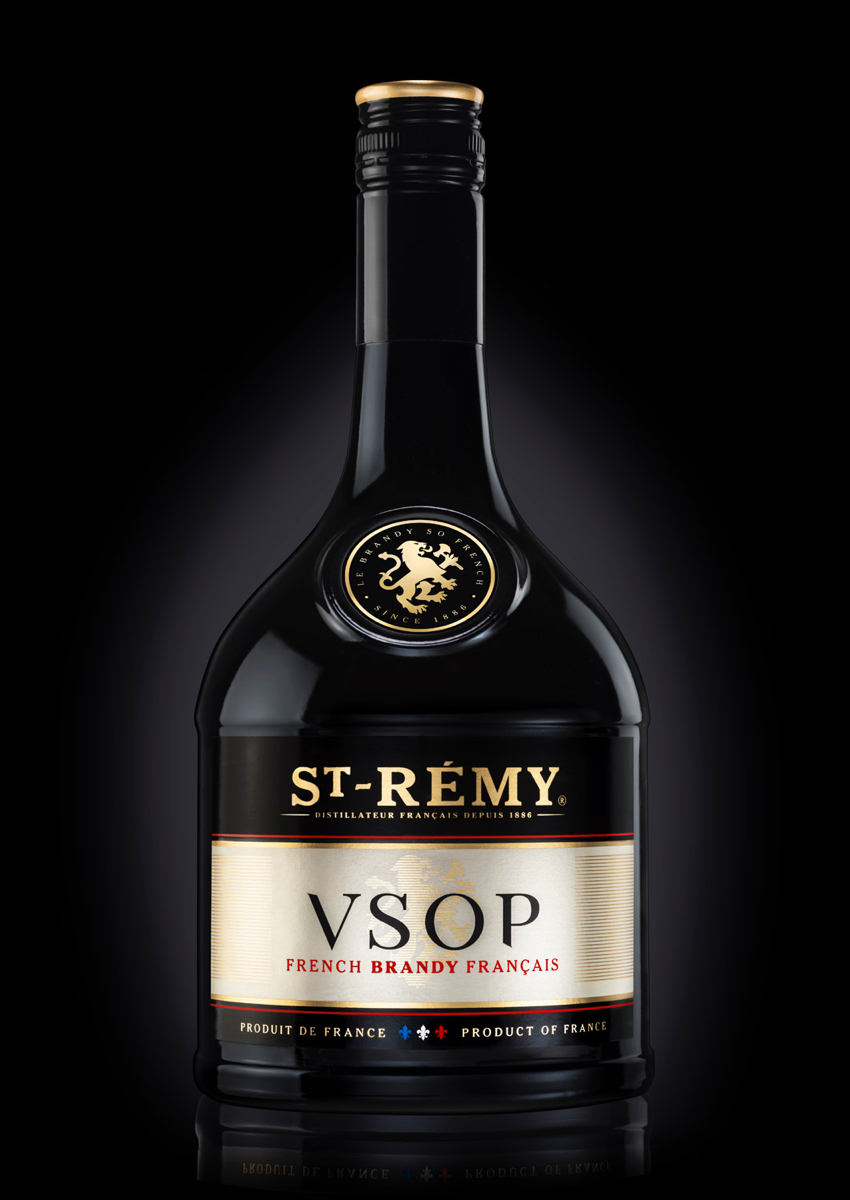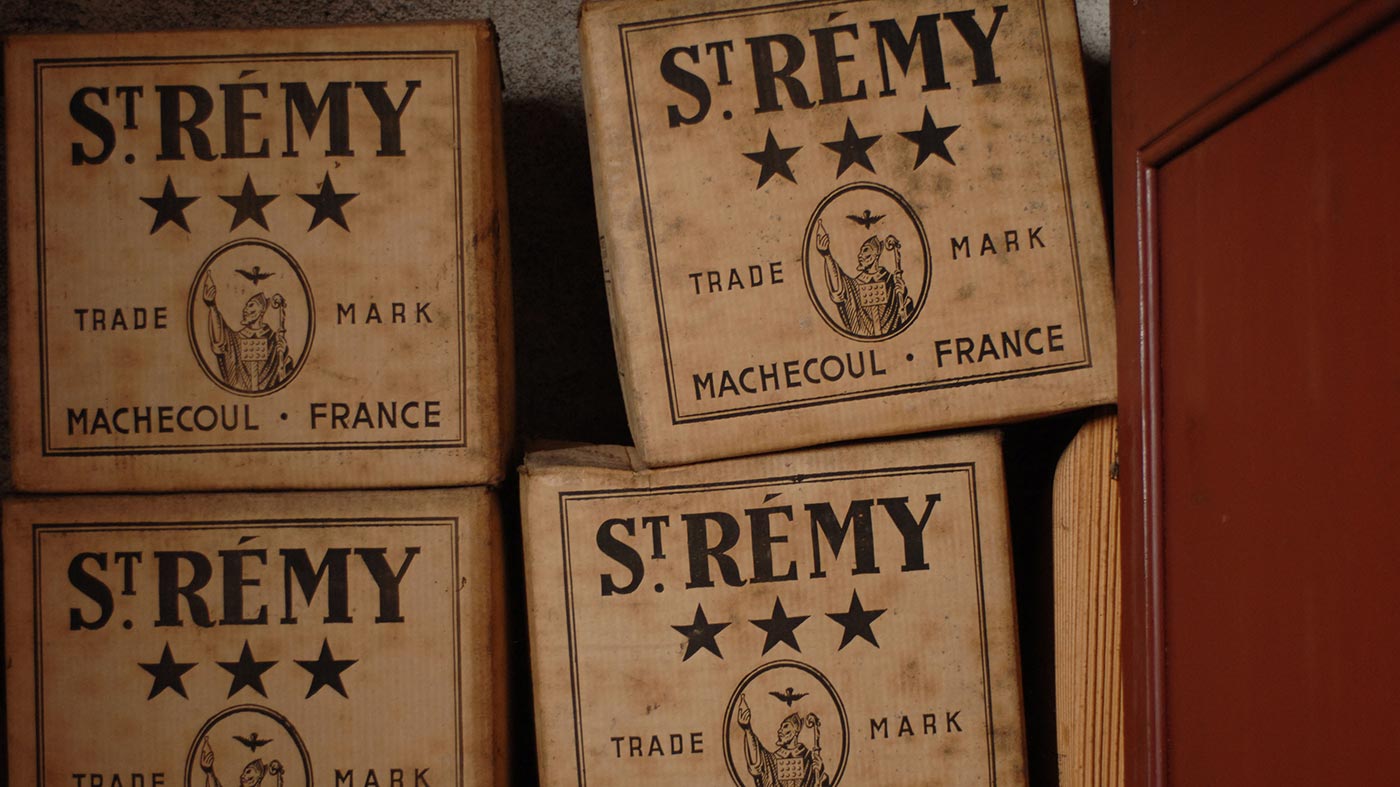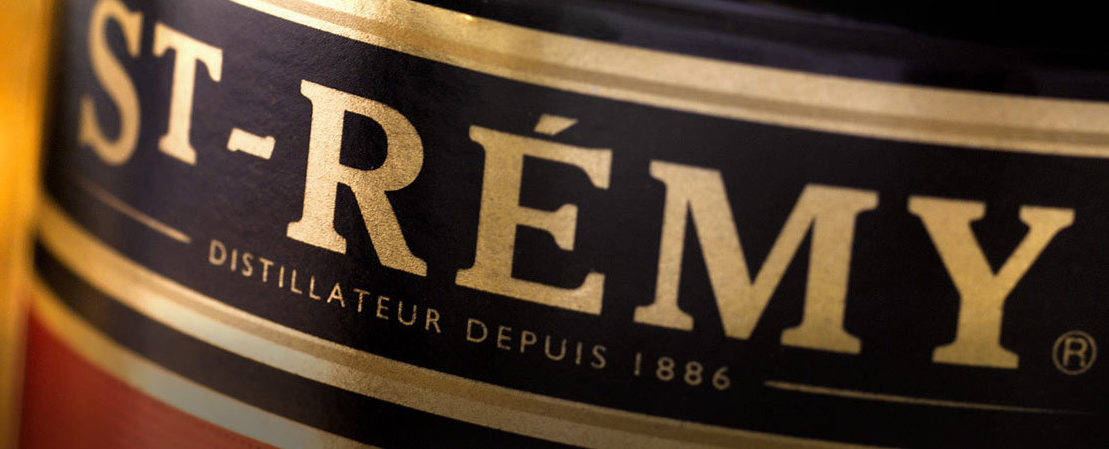Cognac is such an iconic drink that we often overlook the fact that France also produces other high quality brandies. And Remy Cointreau, the parent company of Remy Martin, is well aware of this. St Remy, owned by the drinks giant, is one such brand, and right now they’re in the middle of a huge makeover to increase brand awareness in a time where craft brandy is poised to hit the big time. And nowhere is this more true than in the US.

The brand of St Remy was created back in 1886, and, as is Cognac, produced through a double distillation process and then aged in French oak barrels. However, St Remy brandy differs in the fact that the grapes are grown in regions other than Cognac. This eaux-de-vie begins life in areas such as Champagne, the Loire Valley, Languedoc-Roussillon, the Rhone alley, and Beaujolais.
The house of St Remy is, we’re delighted to say, headed by a female Master Blender, Cecile Roudaut. This talented lady has been in position since 2016, when she stepped into the shoes of another skilled lady, Martine Pain.

Photo credit: Remy-Cointreau
The overhaul of the brand is huge. Herve Buzon, St Remy’s global brand director, is excited about the future. He’s been pivotal in wanting to create ‘rules’ as to how such brandies are created. Much in the same way that making Cognac has to comply to strict legislation in order to carry the prestigious name.
In the same way as Cognac has the BNIC, French brandy also has a governing body: the Federation of French Brandy (FFB). And for the last few years they’ve been working on exactly what the specifications for such a brandy should be. They’re now at the stage where they’ve prepared a project to submit to the EU for approval.

St Remy Brandy is no slouch in the quality stakes, with a VSOP, an XO, a Reserve Privee, and even a limited edition St Remy Small Batch Reserve. It’s currently exported to around 70 different countries, including the US, Canada, India, and Nigeria. Remy Cointreau hope to attract the burgeoning craft brandy market, leading the way in top quality French brandy that will, in turn, hopefully lead people to purchase the more expensive Cognac.
We have to say, as lovers of all things brandy, and, of course, all things French, that investments into such products can only bode well for all concerned. It’ll be interesting to watch how the developments progress, and if French brandy does end up with a set of regulations in the same vein as that of Cognac.
Watch this space…
Sources: just-drinks.com, remy-cointreau.com, thespiritsbusiness.com








1 Comment
Great article!
I’m trying to get a feel for St. Remy, the XO in particular. How good is it? How is it able to be sold SO much more cheaply than even young or lower-end cognacs?
My uninfomed sense is that it likely has a MUCH better quality to price ratio than its American competitors, due to its history, being made in the French way, etc. I assume it has fewer additives than most big American brandies and French grapes are on average grown with fewer chemicals than American grapes.
On the downside, I’m imagining that St. Remy is distilled in tall industrial column stills to a higher proof, leading to a distillate with fewer esters and less character, and that, in spite of the “XO” it is actually non-age-stated. And it may contain more additives than Cognacs are allowed to contain. Is that right?
Anyway, I want it to be good because it’s a great deal. And I wonder what the experts think. Is it good?